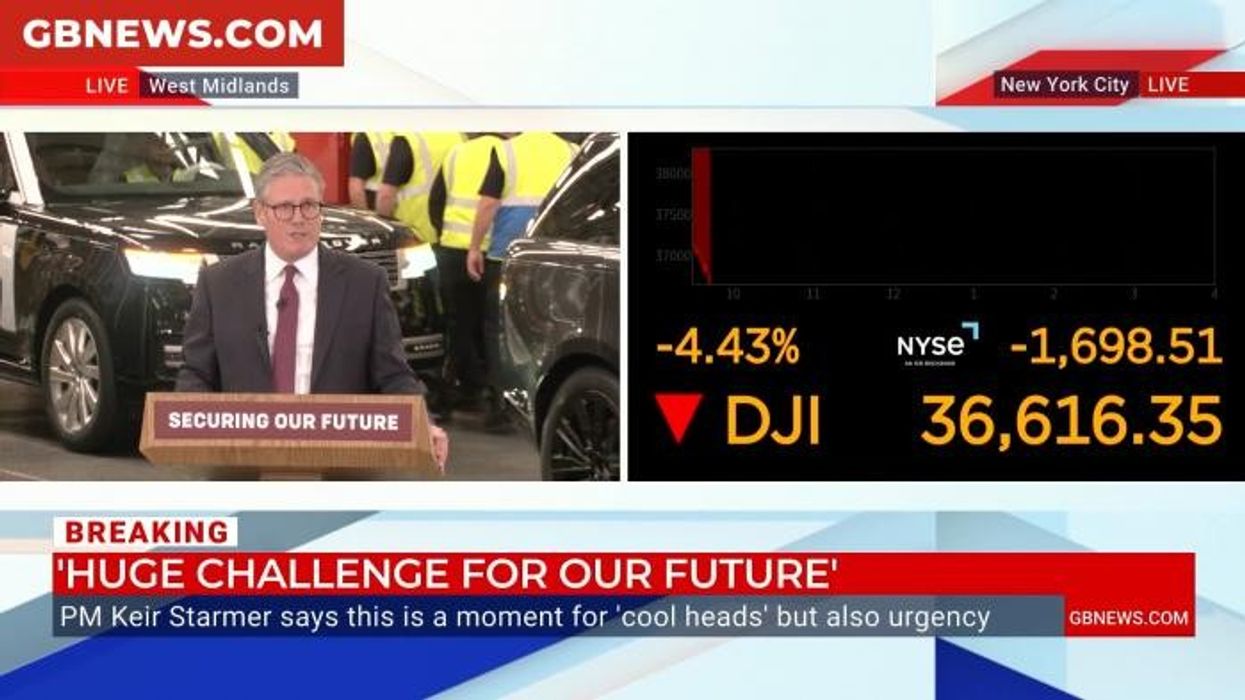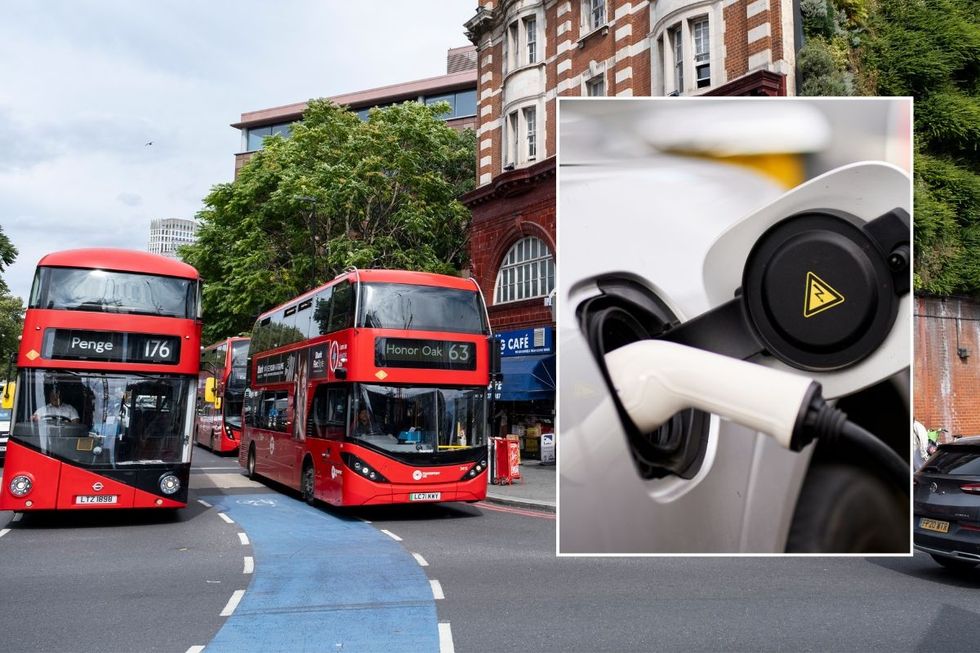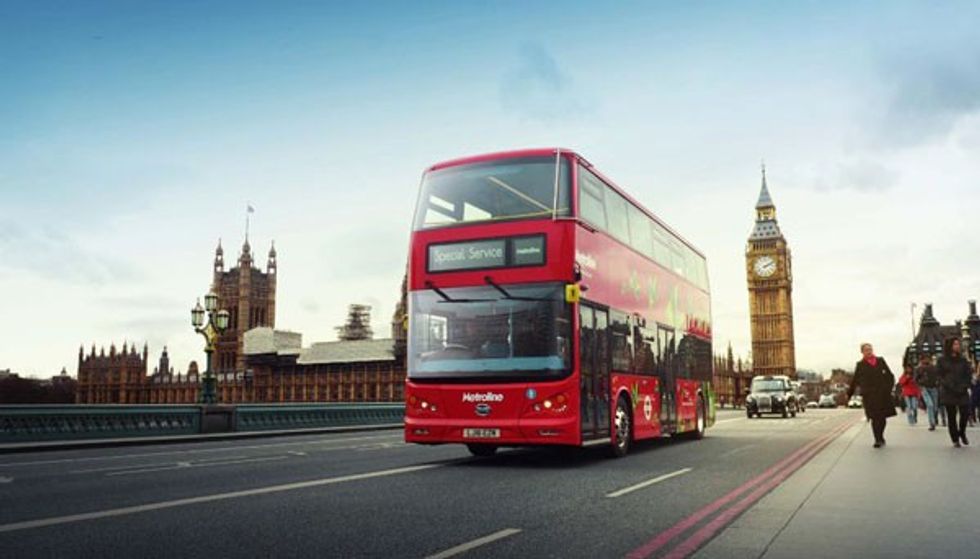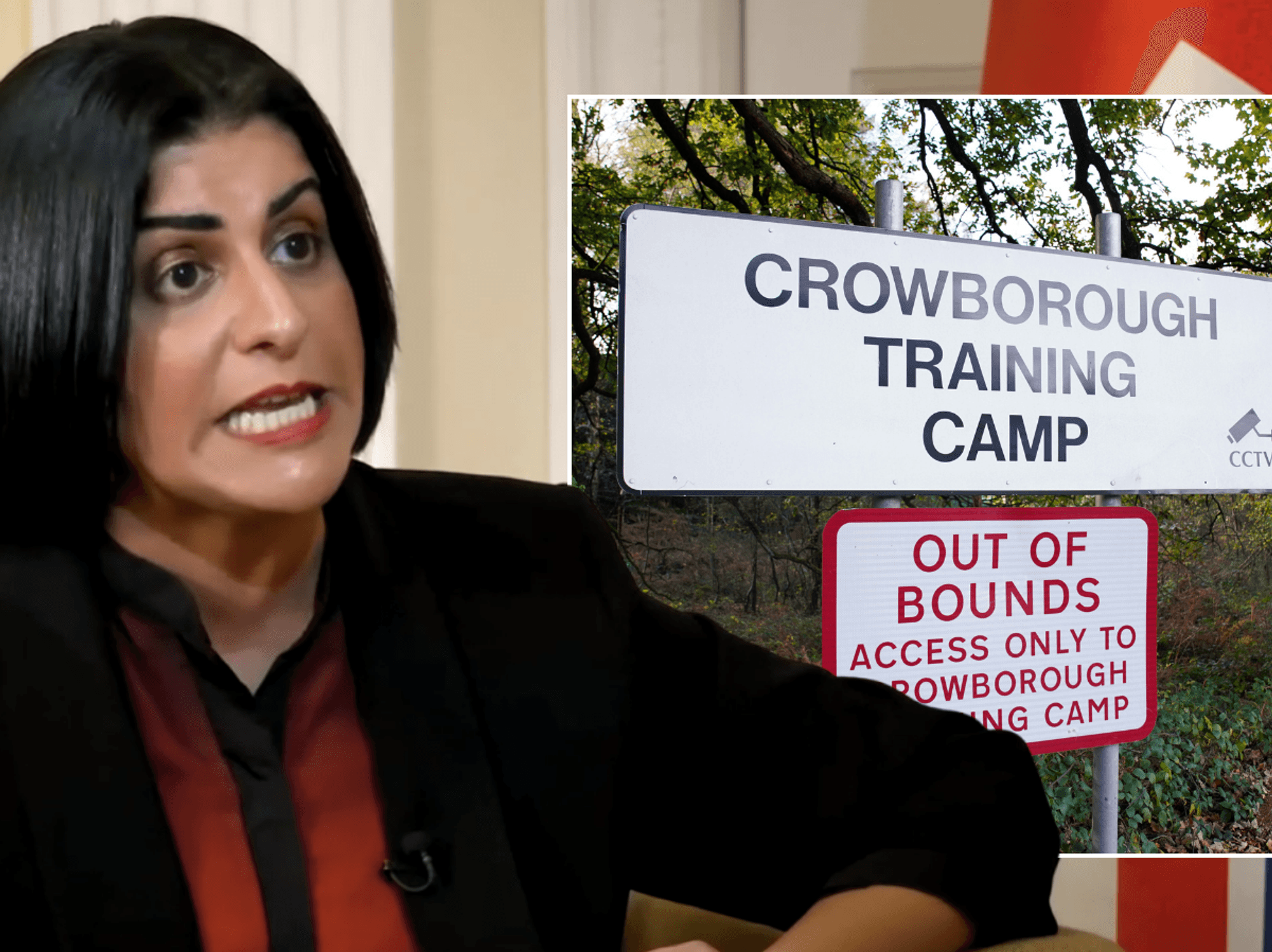Petrol and diesel buses, coaches and minibuses set to be banned by 2030 under new plans

WATCH: Sir Keir Starmer announces the Government's plans to relax the 2030 electric car mandate
|GB NEWS

The Government said it would push forward with the Bus Services (No. 2) Bill
Don't Miss
Most Read
Polluting petrol and diesel buses, coaches and minibuses could disappear from UK roads over the coming decades as the Government pledges to help the transport sector decarbonise.
The Department for Transport (DfT) has announced plans to bring forward the Bus Services (No. 2) Bill to help decarbonise buses.
It comes after the Dft and the Office for Zero Emission Vehicles (OZEV) launched a consultation in March 2022 which looked to hear opinions on how the Government should end the sale of new non-zero emission buses, coaches and minibuses.
This included hearing views on the challenges or transition to zero emission coaches and minibuses, and the measures that would need to be in place to support this.
Do you have a story you'd like to share? Get in touch by emailing motoring@gbnews.uk

The Government is expected to bring new rules in to outlaw polluting buses from 2030
|GETTY/PA
It also questioned what the Government could do to accelerate the transition to zero emission coaches and minibuses, as well as seeing what a realistic date to end these sales would be.
In total, 45 responses were recorded including coach manufacturers and operators, industry groups, sub-national transport bodies, and fuel and infrastructure providers.
It found that there would be significant challenges would be seen since coaches do not return to depots as often as service buses.
As a result of this, coaches may need to find charging or fuelling locations wherever they operate. They would also require the range to be able to travel hundreds of miles on a single charge.
They also highlighted how the coach sector had not received decarbonisation funding from the Government, in addition to support during the coronavirus pandemic.
Further issues could arise since most coach providers are small and medium enterprises, with a very small number of large operators.
Responses from those in the minibus industry also stated that the sector would need adequate grant support to ensure it could decarbonise.
The findings stated: "There were also concerns about driver licensing. Due to the weight of batteries/fuel cells, zero emission vehicles may exceed the weight restrictions for category B licences.
LATEST DEVELOPMENTS:
"This would mean drivers with category B licences may not be able to drive zero emission minibuses, unless the additional weight is offset (for example, by reducing passenger capacity)."
The Bus Services (No. 2) Bill states that, from 2030 at the earliest, the Government will prevent the use of new non-zero emission buses on local bus services in England.
This will only affect non-zero emission buses registered after the starting date, while existing petrol and diesl buses can still be used.
The Government stated that it was considering mechanisms to support the coach and minibus sector to decarbonise.
 BYD has around 1,200 electric buses on the road across London | BYD
BYD has around 1,200 electric buses on the road across London | BYDEarlier this year, the Department for Transport invested almost £38million to bring 319 new electric buses to the road across England.
The buses, which will be on the road by spring 2027, have been allocated to 12 local authorities across the country after they lodged bids to expand ZEV bus fleets.
Commenting on the funding, Local Transport Minister Simon Lightwood, said: "This funding will not only make bus travel cleaner, greener and more comfortable, but it will deliver on our Plan for Change, creating jobs, supporting local economies and accelerating our journey towards a zero emission future.
"By backing local councils and UK manufacturers, we are putting the power in the hands of communities, while helping to deliver on our vision of a sustainable, green transport network. From Hull to Hove, there’s an electrifying future on the way for our buses."










